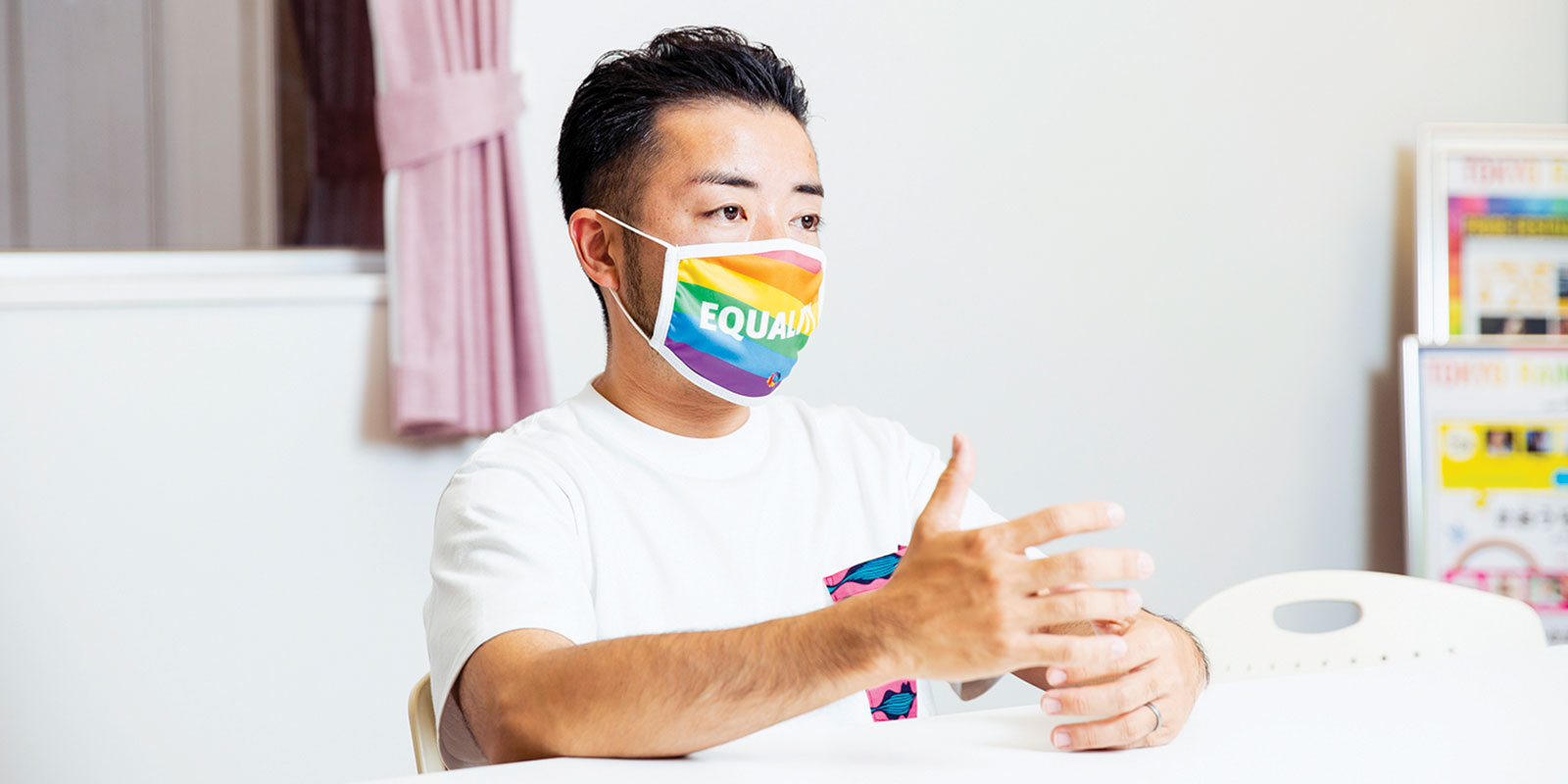Without equals
Japan has some work to do to achieve the sixth SDG of gender equality. Activist Fumino Sugiyama tells Kaoru Hori that it’s time for politicians to act
Fumino Sugiyama used to be a member of Japan’s women’s fencing team. Today he is a leading campaigner in Japan for trans rights; he is the co-director of Tokyo Rainbow Pride, which celebrates the city’s LGBTQ+ community, and as a member of Shibuya’s Gender Equality and Diverse Society Promotion Council he played a role in the district becoming the first municipality in the country to recognise same-sex partnerships. He has also written a number of books.
The UN says gender equality is “a necessary foundation for a peaceful, prosperous and sustainable world”. Unfortunately, Japan still lags behind major advanced economies – in the 2021 edition of the World Economic Forum’s annual ‘Global Gender Gap Report’, it came 120th of 149 countries. The lack of diversity in the economy and in politics – 9.9% of parliamentarians are female, far below the international average of 25.1% – is likely holding the country back.
“It’s important to give everybody equal rights so that everyone gets to start from the same line”
Sugiyama believes that gender inequality is embedded in Japan’s social structures. He talks about how the birth control pill was only introduced in Japan in 1999, 34 years after it appeared in Europe and the US. “Yet Viagra was approved here after an unusually quick review process that only took half a year, shortly after the drug became popular in the US,” he says. “The reason why women’s rights are not easily recognized is that there are almost no women involved in theprocess of making important decisions.”
The numbers bear out his theory: in 1999 there were only six women among the 204 bureaucrats at the Ministry of Health and Welfare, the body responsible for approving the birth control pill and Viagra. “It’s a structural issue rather than a matter of intentional obstruction by men,” he says.
“It’s important to give everybody equal rights so that everyone gets to start from the same line”

How can we eliminate structural distortions and create a more equal society? Sugiyama says fairness is the key. “Fairness is equality without prejudice,” he explains. “It’s not a matter of special treatment. As is always said in LGBTQ discussions, recognizing same-sex marriage is not special treatment. It is important to give everyone equal rights, so that everyone gets to start from the same line.”
The 2015 ruling in the Shibuya and Setagaya wards of Tokyo to allow same-sex couples to get partnership certificates which are the equivalent of marriage was a big step forward; today 106 municipalities implement the partnership system. However, Japan is the only G7 country not to fully recognize same-sex partnerships, and the country still doesn’t have any national legislation protecting LGBTQ people from discrimination. Sugiyama believes that the public’s understanding of gender and LGBTQ issues has “deepened” over the past few years, and Human Rights Watch says that lawmakers are “out of touch with Japanese public opinion” on such topics.
“Just like traffic laws make our lives safer and more secure, gender and LGBTQ laws help people live in this country with peace of mind”
One particular development made Sugiyama feel hopeful for the future – when Ibaraki Prefecture introduced same-sex partnership certificates in 2019 the governor, Kazuhiko Oigawa, said that an individual’s “basic human rights come before [other people’s] understanding”.
“It’s not the lack of understanding that prevents the establishment of systems,” says Sugiyama. “It’s the establishment of systems that lead to greater understanding. “Just like traffic laws make our lives safer and more secure, gender and LGBTQ laws help people live in this country with peace of mind and prevent them from being hurt by discrimination and prejudice that stem from a lack of understanding.”
“Parades can’t change the law but it’s important to create an atmosphere that allows for the laws to change. The current rules don’t match reality”
The theme of this year’s Tokyo Rainbow Pride was “Speak up. Change the world. Our voices. Our rights.” “Parades can’t change the law but it’s important to create an atmosphere that allows for laws to change,” says Sugiyama. “The current rules don’t match reality, and updating them would lead to a more accepting society. Politicians should take action.”
And public opinion really does seem to be shifting. “Fifteen years ago, when I told people I was transgender they kept asking about it over and over again. These days when I tell people I’m transgender they say ‘Oh, so you are’. Society is changing drastically. The question now is whether politics will change.”
“Parades can’t change the law but it’s important to create an atmosphere that allows for the laws to change. The current rules don’t match reality”